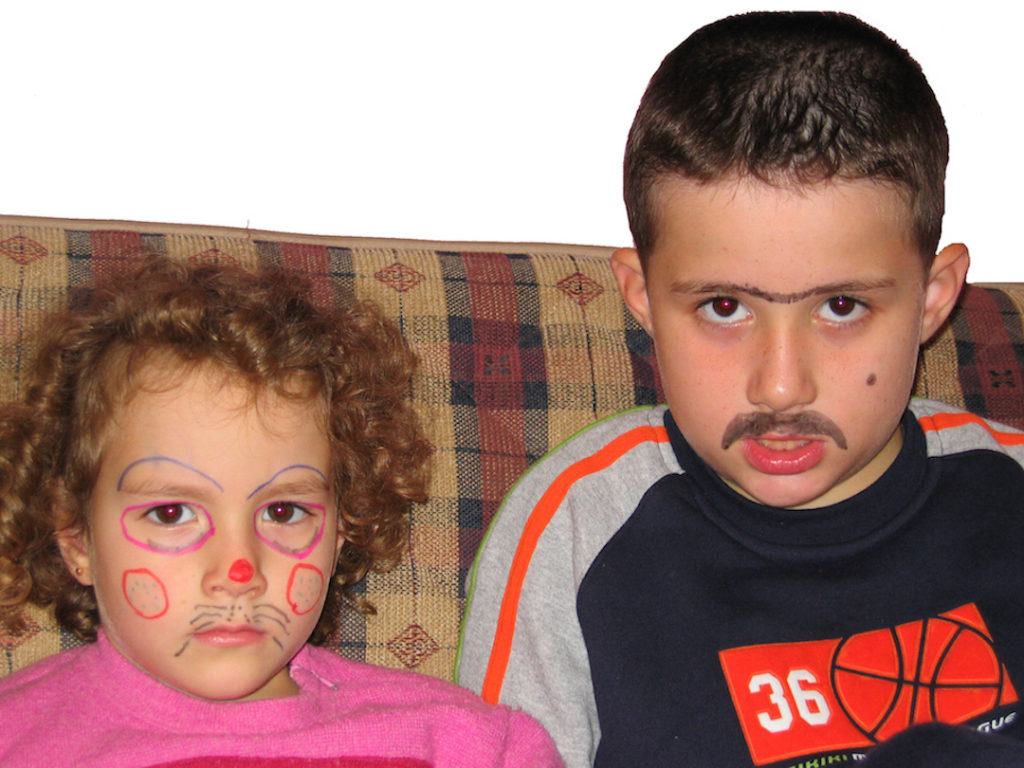
There's (Probably) No Such Thing as an Emotional Genius
Without a doubt there are some people who are born geniuses. Mozart, for example, was reported to have published his first musical composition when he was only 5. Similar examples in math, science, and language abound. One thing that child prodigies have in common is that their abilities are easy to prove. You say you’re 8 year-old is a physics whiz? Well, if she can hang with this kid, who started college at the same age, then you’re probably right.
Emotional intelligence, however, can be more difficult to prove. Young children sometimes develop precocious emotional skills as a response to their caregivers’ deficits. They sacrifice their own development in order to play a role for parents who may subtly or grossly communicate that the child must meet the adult’s emotional needs.
Some examples can help us flesh this out.
Want More Help with Your Child?
Enroll Now in a Free Online Course on Parenting Tough Toddlers!
The Caretaker Versus the Tantrum Thrower
Yanira is a bright-eyed and serious 3 year-old. Elena, her mother, is feeling sick and is resting on the couch. Yanira stays close to her mother and notices whenever she stirs, offering up a cup of water or petting her head. In a soft voice she says, “Don’t worry, mommy. It’s OK.” Elena is sure to thank her sweet child and tells her, “Yani takes such good care of me. You’re a good, big girl, aren’t you?”
Another example:
Ricky is writhing on the bathroom floor, screaming and kicking wildly as his mother, Genevieve, waits in the doorway. All she had to say was, “Time to brush your teeth,” and her spirited 4 year-old is now horizontal, flutter-kicking his way across the tile. Genevieve manages to squeeze out a few words of encouragement in between gritting her teeth and being interrupted by Ricky’s staccato shouts: “No!--No!--I’m not going to!--”
"Young children sometimes develop precocious emotional skills as a response to their caregivers’ deficits."
At first blush Ricky would seem to be overmatched by Yanira in a battle of emotional wits, in spite of his age advantage. Yanira shows a remarkable ability to assess and respond to her mother’s suffering, whereas Ricky flips out when he is tasked with something as familiar and easy as brushing his teeth. But as we extend each child’s story, we see that things are not as they appear.
Uncovering the Emotional Truth
“Yanira is very well-behaved,” the preschool teacher explains to Elena, “but she has trouble getting along with the other children. She won’t play with them if she can’t be in charge, so she often entertains herself and doesn’t show much interest in her peers...But I have to say, she almost never causes problems. She’s really easy to have in class; I just want to help her connect with friends a little more and let us know when she needs help. Like the other day she fell down and skinned her knee. No one saw it. Her knee was bruised and bleeding, but she didn’t cry or say anything to us. We just caught it by chance when the kids were coming back inside the classroom.”
Elena is surprised to hear of her daughter’s social difficulties, given that her child is so savvy at home. She leaves the meeting feeling irritated with and skeptical of the teacher.
Elena isn’t yet aware of the impact that her rocky and distant marital relationship has on her or her young child. Neither parent sees how their problems lead to a pervasive confusion in their preschooler about who takes care of whom. While Yanira may be very attuned to her mother’s emotional states and capable of providing help, she may not be developing a broad base of social-emotional skills to incorporate with her peers at preschool because, in the face of stress, her central way of interacting with people is to control and relieve their anxieties and worries. These kinds of experiences with her caregivers, ingrained through repetition, set the stage for future intimate relationships in which Yanira unconsciously and routinely sacrifices her own emotional needs as she takes care of and controls others.
And what of the tantrum thrower?
“You know what, Ricky? You’re right! It’s not your turn to brush teeth. I totally forgot it’s Teddy’s turn.” Genevieve rushes to the child’s room, brings back his favorite stuffed animal, and holds a toothbrush to his face, exclaiming, “No more hiding, Teddy! You know we have to brush every morning.” In a husky Teddy voice she says, “No mom! You can’t brush my teeth anymore. I’m too big. I want to do it myself.” Feigning surprise, the mother glances over at Ricky--whose tantrum is on pause--and says, “OK, Teddy. I know how happy you feel when you brush your own teeth. Here’s the brush, big guy.” Genevieve uses the animal’s paw to pretend that he brushes his own teeth. Now done she says, “Perfect! Now I need to get my shoes on.” Looking again at Ricky, she says, “I’ll be in my room when you’re ready” and walks out. A moment later the preschooler enters the bedroom and, without a word, has his mother finish brushing his teeth.
"Learning emotional skills is a slow, iterative, trial-and-error, failure-filled process of having experiences in close relationships."
Having more context helps us better understand these two young children’s behavior. Ricky is having a developmentally-typical tantrum that centers on his need to feel independence from his mother. Although it’s trying for Genevieve and requires some skilled trickster parenting, her son’s behavior demonstrates emotional growth. In the end, he was willing to compromise with his mother’s wishes without sacrificing too much of his own need to feel like a big kid. Young children should struggle to understand, control, and express their emotions, but they also should show some progress in these areas over time. From a zoomed-out perspective then, Ricky is the child who seems better prepared to continue growing emotionally because his path appears to be less encumbered by his parent’s intense needs.
Learning emotional skills is a slow, iterative, trial-and-error, failure-filled process of having experiences in close relationships. It’s true that children come into the world with varying degrees of abilities in this area. But to assume that the precocious behaviors shown by children like Yanira reflect some emotional genius misses the important context of the child-parent relationship, which with other factors, drives the young one’s emotional development.
To learn some of Genevieve's parenting skills, check out my free video course on Parenting Tough Toddlers.


